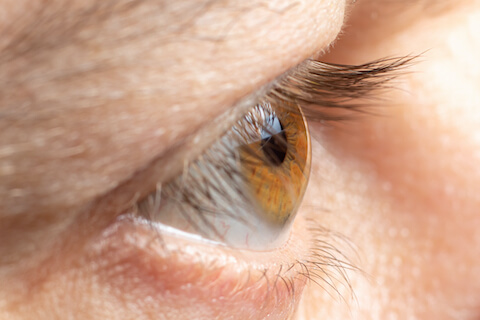
The transparent front part of the eye that covers the iris, pupil, and anterior chamber, providing most of an eye’s optical power. The cornea has unmyelinated nerve endings sensitive to touch, temperature and chemicals; a touch of the cornea causes an involuntary reflex to close the eyelid. Because transparency is of prime importance the cornea does not have blood vessels; it receives nutrients via diffusion from the tear fluid at the outside and the aqueous humour at the inside and also from neurotrophins supplied by nerve fibers that innervate it.
The cornea is the only part of a human body that has no blood supply; it gets oxygen directly through the air. The cornea is the fastest healing tissue in the human body, thus, most corneal abrasions will heal within 24-36 hours.
DMEK and DSEK Procedures
Vision performs the latest, advanced procedures in cornea transplantation. DMEK stands for Descemet’s Membrane Endothelial Keratoplasty and DSEK stands for Descemets Stripping Endothelial Keratoplasty.
Both DMEK and DSEK remove Descemet’s membrane and endothelium. DMEK adds only a new Descemet’s membrane and endothelium. DSEK also adds a new Descemet’s membrane and endothelium but with a layer of donor stroma. A way to remember this is to pretend that the “S” in DSAEK stands for “stroma.”
These procedures have replaced the traditional full thickness cornea transplant, known as Penetrating Keratoplasty. A countless number of patients have a corneal disease involving only the most inner layer of the cornea, the DMEK and DSEK procedures replace just the abnormal layer, leaving the remainder of the healthy cornea untouched, where the traditional procedure replaced the whole cornea in its entirety.
The advantages are numerous and significant. The procedures are safer, well tolerated, and performed under local anesthesia. The healing time is much faster with patients often regaining vision in a mere few weeks compared to many months or even a year with the traditional procedure. The procedures also have only a slight effect on the patient’s glasses prescription while the traditional procedure may cause dramatic changes and the induction of tremendous astigmatism.
Request an Appointment
Please note we are seeing patients by appointment only, including optical. Call 231.739.9009
or click here.






